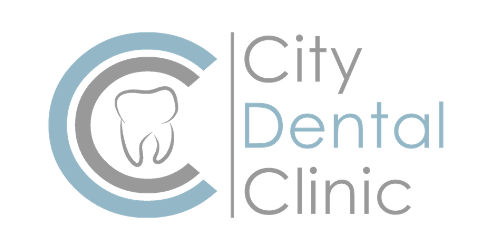Dental Care during Pregnancy

Looking after your oral health during pregnancy is important for both mum-to-be and baby. So be sure you don’t neglect your oral and dental hygiene routines and always let your dentist know if you are pregnant. Cleaning your teeth a least twice a day for 2 minutes, together with regular flossing, will help prevent plaque build up and keep gums healthy.
Inform the medical staff or the dentist who is treating you about a pregnancy?
Are you planning a pregnancy in the near future?
If you’re planning to have a baby in the near future, visit your dentist before you fall pregnant so that X-rays can be taken to detect any problems. Your teeth will be professionally cleaned, and any gum issues picked up. This will also allow your dentist time to perform procedures such as root canals, extractions, fillings or crowns before you fall pregnant.
Are you already pregnant?
If you are undergoing dental treatment and you discover you are pregnant, tell your dentist so he or she can adjust the planned treatment to suit your new circumstances.
What medication or vitamins are you taking?
It’s important to inform your dentist of any medication or vitamins that you are taking, together with any medical advice you’ve been given by your doctor. Your dentist may need to change your dental plan in light of this information.
Importance of a proper oral and dental hygiene before getting pregnant
The better your level of oral health before getting pregnant, the higher the chances that you will not have to visit the dentist for major treatments during pregnancy, besides the regular check-ups. Teeth should be brushed for two minutes twice a day, together with flossing to ensure healthy gums and clean teeth.
Importance of regular dental check-ups during pregnancy
Regular dental check-ups throughout pregnancy are essential. Your dentist can detect problems such as pregnancy gingivitis, cavities and loose teeth way before they become serious issues.
Pregnancy causes many changes throughout the body. As the pregnancy progresses so the body’s cells start to retain fluid. Fluid retention is also found in the gums which, together with changes in hormonal levels, can lead to inflammation which in turn can make expectant mothers susceptible to periodontal disease.
Pregnancy gingivitis is quite common and is exacerbated by high progesterone levels which can cause the rapid development of bacterial plaque which causes gum disease. If you experience any gum swelling, bleeding or tenderness, see your dentist as soon as possible.
Cavities are another problem during pregnancy. Moms-to-be often crave unhealthy foods that they wouldn’t usually eat, foods containing sugar which attack the teeth. Another cause of cavities is vomiting, which increases the acidity in the mouth and erodes the enamel on the teeth, leading to cavities.
Following a good oral hygiene routine, together with visits to a dentist will generally keep your mouth healthy throughout pregnancy.
Can x-rays be done during pregnancy?
X-rays are perfectly safe to have during pregnancy. Many dentists prefer not to perform X-rays during a routine check-up in the first trimester; however, the radiation levels are extremely low, and your dentist or hygienist will cover your abdomen with a lead apron to protect baby, and your thyroid will be protected by wearing a lead collar
What type of treatments are safe throughout a pregnancy?
Anaesthetic, for numbing and relaxation, can be safely used during pregnancy. Your dentist will use low concentrations of an appropriate anaesthetic.
Tooth extractions and fillings are safe throughout pregnancy but the preferred time for these procedures is during the second trimester. The same applies to root canals; the procedure can be performed during pregnancy, preferably during the second trimester.
Teeth whitening can be safely administered, but moms-to-be in their third trimester may find it difficult to remain still while the gel is applied and cured. A word of warning, if you’re using a home whitening kit, ensure that the hydrogen peroxide concentrate is lower than 6%, as higher concentrations can cause tissue damage. That’s why its better to leave teeth whitening to professionals.
Orthodontic work, either ongoing or new, is equally safe throughout pregnancy, the only issue may be weight gain which can cause your mouth and face to change shape.
If this occurs, the braces would need to be adjusted or new braces made. Swollen gums may also make the wearing of bracing feel uncomfortable. Many dentists recommend expectant moms to wait until baby is born before embarking on orthodontic work.
When is the best or safest time to receive those treatments during pregnancy?
Although dental treatment is safe throughout pregnancy, ideally postpone treatment until the second trimester when the development of baby’s organs is complete, and you’ve gone through the first trimester’s nausea and vomiting issues.
Obviously, if there’s an emergency during your first trimester then book an appointment with your dentist immediately, as an infection could harm both you and baby.
Treatments can be performed during the third trimester, however, getting comfortable in a dentist’s chair when you’re between 26 and 40 weeks pregnant can be a challenge.
The Right Diet for Your Teeth and Your Growing Baby During Pregnancy
Eating a healthy balanced diet is important for overall health for both you and baby. It’s also important for maintaining oral health and for your baby’s developing teeth. Eat a wide variety of fruit, vegetables, whole grains and dairy products.
Steer clear of sugary and starchy foods and avoid foods that deplete your calcium supply, such as salt, caffeine, alcohol and fizzy, sugary drinks. Choose calcium rich foods such as broccoli, yoghourt, salmon and almonds.
Post-birth Dental Care & Dental Appointments
Visit your dentist for a post-natal check-up within a couple of months after you’ve had your baby. If you’ve had oral issues during pregnancy, then schedule an appointment sooner. It’s also recommended that you take your little one for his/her first dental appointment at around 6 months or when the first tooth erupts.
The dentist will be able to check for any oral abnormalities and it will also slowly allow baby to realise that going to the dentist is a normal part of every day life.
